
Farasan Islands: Saudi Arabia's Hidden Gem in the Red Sea
Nestled in the heart of the Red Sea, the Farasan Islands are a stunning archipelago that offers a unique blend of natural beauty and rich history. Comprising over 80 islands, this destination is a paradise for nature lovers and history buffs alike. The crystal-clear waters are teeming with marine life, making it an ideal spot for snorkeling and diving. You can explore the vibrant coral reefs and witness a variety of fish species, including the elusive dugong. As you wander around the islands, you'll encounter ancient ruins that tell the story of the region's past. The Farasan Islands have been inhabited for centuries, and you can visit historical sites such as the Ottoman Fort and the ancient village of Al-Qassar. These landmarks provide a glimpse into the islands' rich cultural heritage. In addition to natural and historical attractions, the Farasan Islands are home to a diverse array of wildlife. Birdwatchers will be thrilled by the opportunity to spot rare species such as the osprey and the sooty falcon. The islands are also a haven for gazelles, which roam freely in the wild. Whether you're a nature enthusiast, a history lover, or simply seeking a tranquil escape, the Farasan Islands offer something for everyone.
Local tips in Farasan Islands
- Visit between October and April for the best weather.
- Bring snorkeling gear to explore the vibrant underwater world.
- Hire a local guide to learn more about the historical sites.
- Carry cash as card payments may not be accepted everywhere.
- Respect local customs and dress modestly.
Farasan Islands: Saudi Arabia's Hidden Gem in the Red Sea
Nestled in the heart of the Red Sea, the Farasan Islands are a stunning archipelago that offers a unique blend of natural beauty and rich history. Comprising over 80 islands, this destination is a paradise for nature lovers and history buffs alike. The crystal-clear waters are teeming with marine life, making it an ideal spot for snorkeling and diving. You can explore the vibrant coral reefs and witness a variety of fish species, including the elusive dugong. As you wander around the islands, you'll encounter ancient ruins that tell the story of the region's past. The Farasan Islands have been inhabited for centuries, and you can visit historical sites such as the Ottoman Fort and the ancient village of Al-Qassar. These landmarks provide a glimpse into the islands' rich cultural heritage. In addition to natural and historical attractions, the Farasan Islands are home to a diverse array of wildlife. Birdwatchers will be thrilled by the opportunity to spot rare species such as the osprey and the sooty falcon. The islands are also a haven for gazelles, which roam freely in the wild. Whether you're a nature enthusiast, a history lover, or simply seeking a tranquil escape, the Farasan Islands offer something for everyone.
When is the best time to go to Farasan Islands?
Iconic landmarks you can’t miss
Farasan Island Marine Sanctuary
Discover the beauty of Farasan Island Marine Sanctuary, a wildlife refuge showcasing diverse marine life and breathtaking landscapes, perfect for eco-tourism.
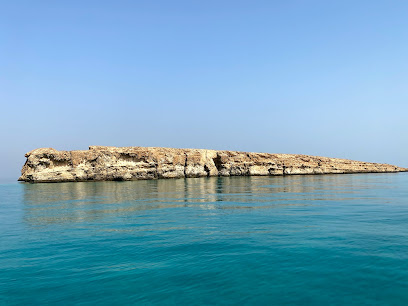
Farasan Island
Explore Farasan Island, Saudi Arabia's hidden paradise with stunning beaches, vibrant wildlife, and rich cultural experiences waiting to be discovered.
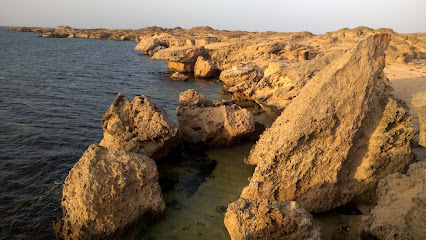
Beach Janaba
Discover the tranquil beauty of Beach Janaba, a hidden gem on Farasan Island's eastern coast, perfect for relaxation and adventure amidst stunning scenery.
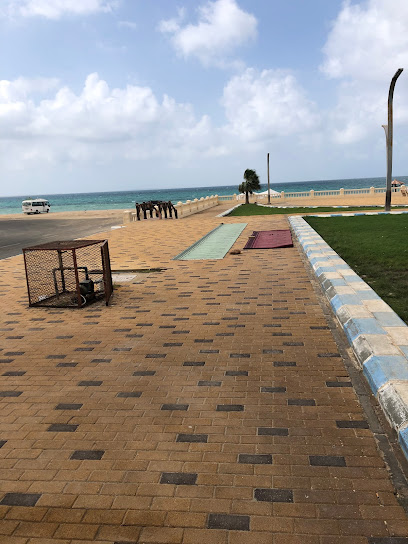
Farsan
Farsan Island: A serene escape into nature, where pristine beaches and vibrant marine life await in the heart of the Red Sea.
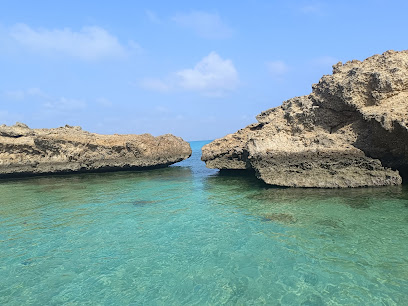
Unmissable attractions to see
Farasan Island Marine Sanctuary
Explore the breathtaking Farasan Island Marine Sanctuary, a protected paradise of vibrant coral reefs and diverse marine life in Saudi Arabia.
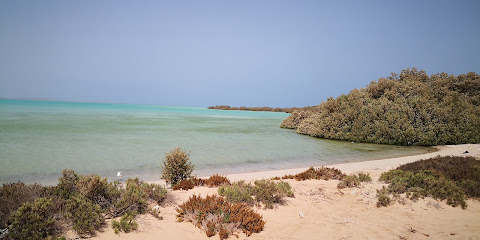
Awqat Saeeda Theme Park
Experience thrilling rides and family fun at Awqat Saeeda Theme Park in Jazan, a top amusement park destination for tourists seeking excitement.
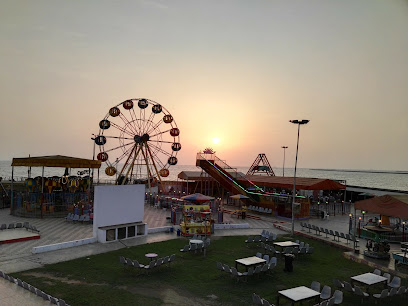
Adosareyah Castle
Explore the architectural splendor and historical significance of Adosareyah Castle in Jazan, a captivating destination for history enthusiasts and travelers alike.
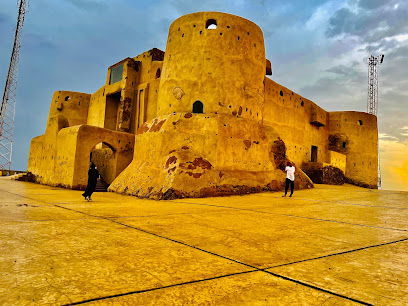
ممر داخل البحر
Discover the breathtaking beauty of Mamar Dakhil Al-Bahr in Jazan, where coastal charm meets vibrant activities for an unforgettable experience.
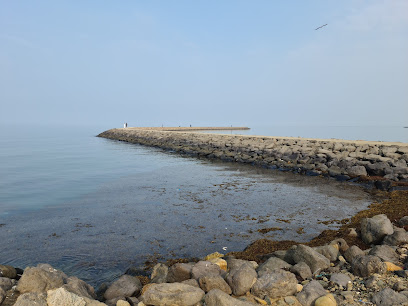
Farasan Island
Explore Farasan Island: A hidden gem in the Red Sea, offering stunning beaches, rich culture, and vibrant marine life for the ultimate getaway.
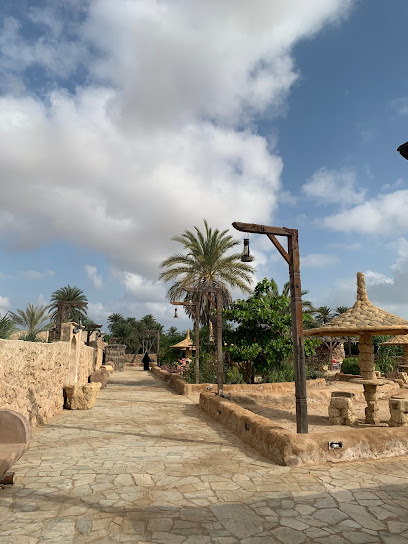
House of Riffai'
Discover the historical charm of the House of Riffai, a stunning heritage site on Farasan Island, rich in culture and architectural beauty.
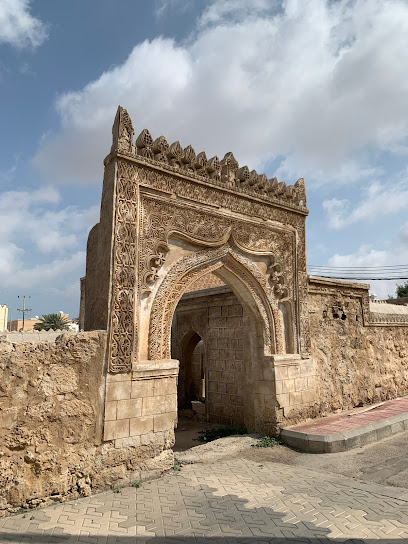
Beach Janaba
Discover the tranquil beauty of Beach Janaba on Farasan Island, a hidden gem with stunning sands and crystal-clear waters perfect for relaxation.
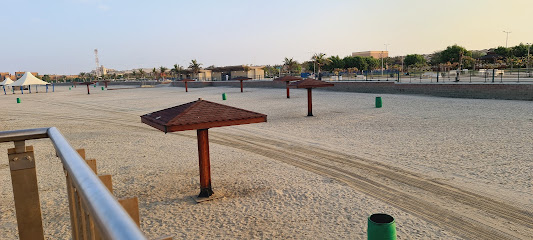
مرجيحه فرسان
Experience the captivating beauty and rich culture of Merjiah Farsan, a must-visit tourist attraction in Al-Hussein, Saudi Arabia.
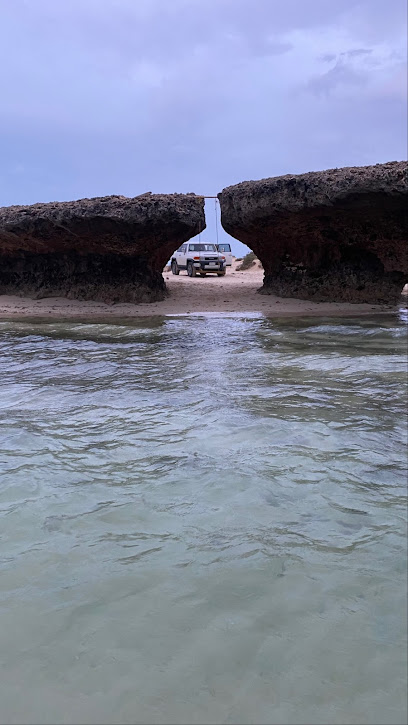
شاطئ رأس القرن Ras al Qarn Beach
Explore the serene beauty of Ras al Qarn Beach, a breathtaking destination on Farasan Island, perfect for relaxation and aquatic adventures.
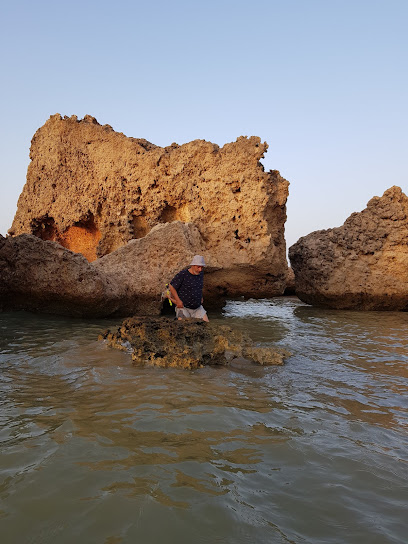
The Ottoman Fort
Discover the captivating history and breathtaking views at The Ottoman Fort on Farasan Island, a must-visit heritage site in Saudi Arabia.
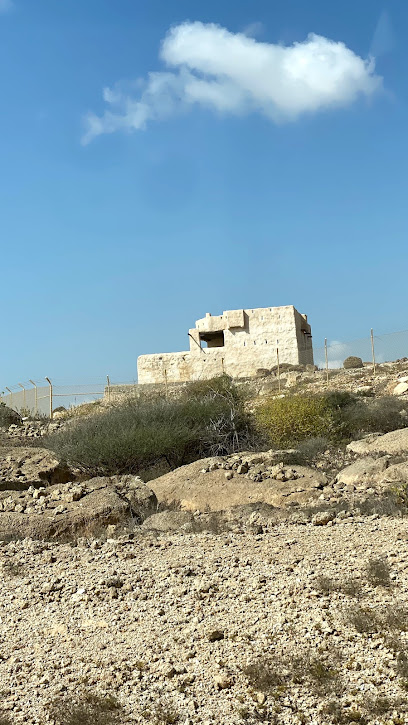
Ink Island
Explore Ink Island, a captivating tourist attraction in Saudi Arabia, where stunning landscapes meet rich cultural heritage for an unforgettable experience.
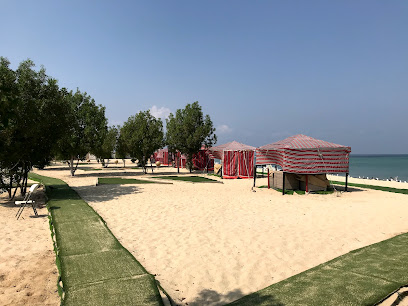
Farasan Port Ferry
Explore the enchanting Farasan Islands with the comfortable and scenic Farasan Port Ferry, your gateway to adventure and natural beauty.
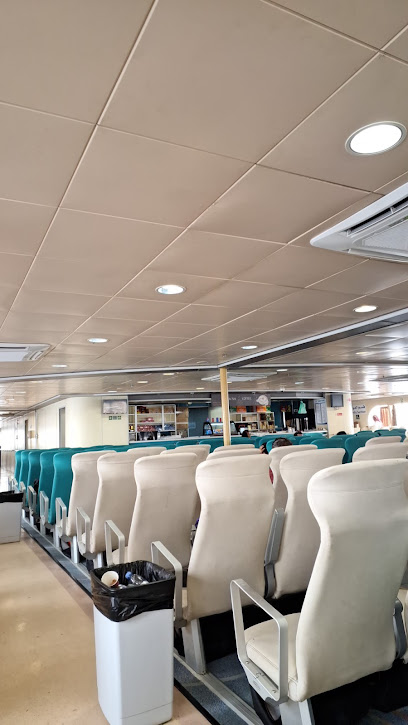
جزيرة دمسك
Explore جزيرة دمسك: A stunning island escape in Saudi Arabia, blending natural beauty, adventure, and rich cultural experiences.
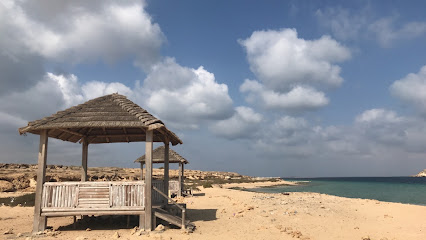
Qandal Forest غابة القندل
Experience the serene beauty of Qandal Forest, a national treasure in Jazan, where lush landscapes and diverse wildlife await your exploration.
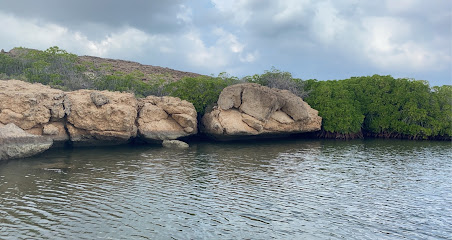
محمية الغزلان
Explore the natural beauty of Mahmiya Al-Ghazlan Wildlife Refuge, a serene sanctuary for wildlife and nature enthusiasts in Saudi Arabia.
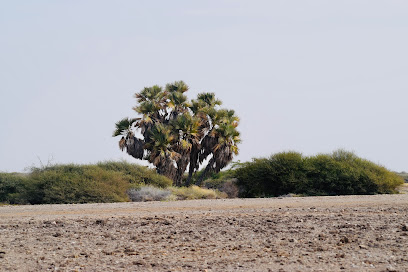
Essential places to dine
Albaik
Discover Albaik in Jazan: A fast food paradise offering flavorful fried chicken at unbeatable prices.
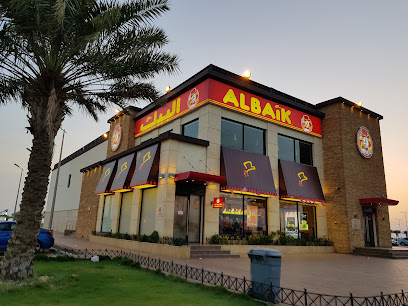
مطعم لؤلؤة الساحل
Experience authentic Saudi cuisine at Luluat Al Sahil in Jazan - where every dish tells a story.
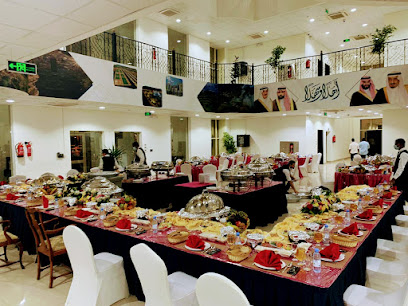
Happy times Fish Restaurant
Discover fresh seafood delights at Happy Times Fish Restaurant in Jazan - where every bite is a celebration of coastal flavors.
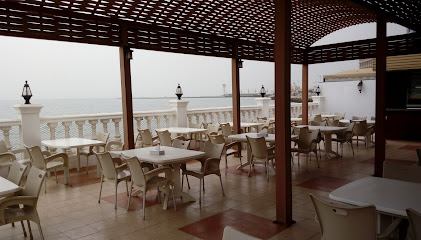
Applebee's
Discover delicious American cuisine at Applebee's in Jazan - where comfort food meets vibrant atmosphere.
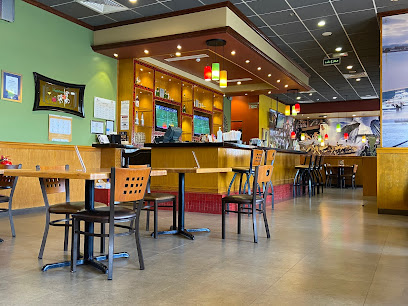
Taste of spices
Experience the vibrant flavors of India at Taste of Spices in Jazan – where every dish tells a story through aromatic spices.
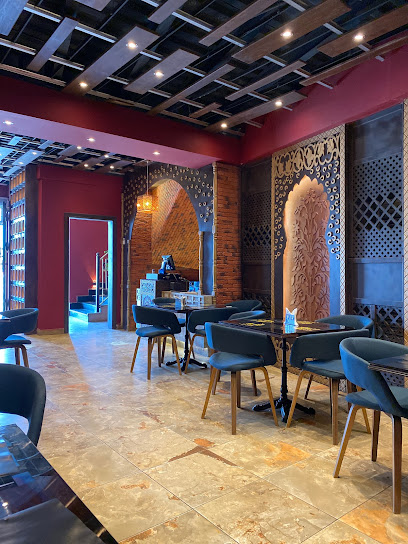
Ocean Basket
Discover Ocean Basket in Jazan – where fresh seafood meets stunning views along the beautiful Corniche.
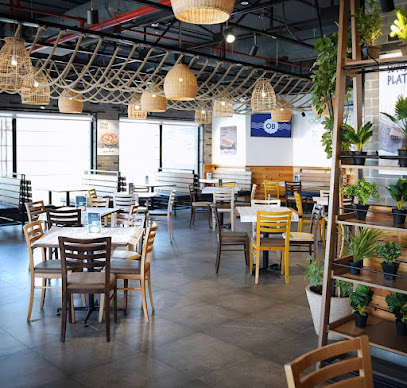
South West
Experience delightful fast food at South West in Jazan - where quality meets flavor along the stunning Corniche Road.
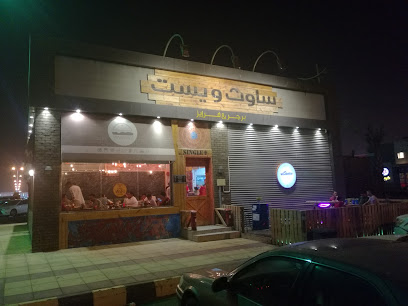
Happy Hospitality Oriental Food
Experience authentic Yemeni and Saudi cuisine at Happy Hospitality Oriental Food in Jazan - a culinary gem along the stunning Corniche Road.
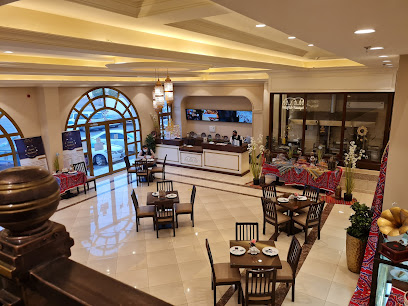
مطعم كوست فيو Coast View
Discover exquisite seafood at Coast View, where stunning sea views meet culinary excellence in Jazan.
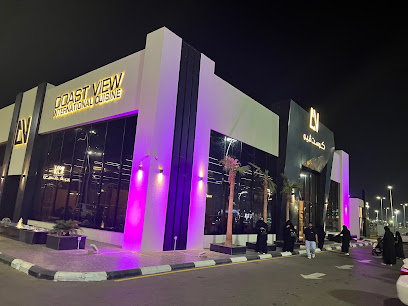
مصنف | MASNAF
Discover the exquisite flavors of Saudi Arabia at MASNAF – where tradition meets modern fine dining in Jazan.
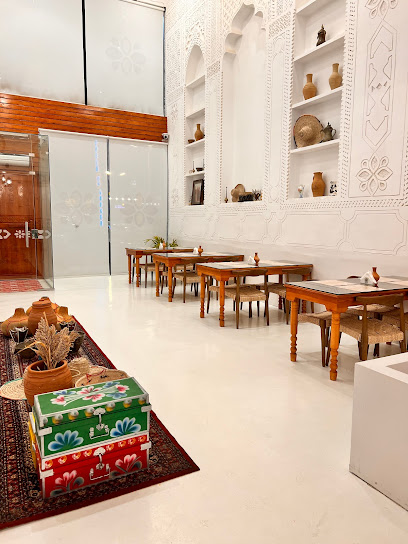
مطعم قناديل التوت
Experience authentic flavors at مطعم قناديل التوت in Jazan – where family-friendly dining meets traditional cuisine.
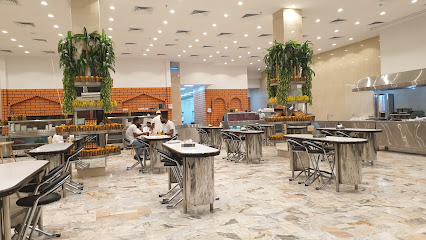
Shrimp Nation
Discover the exquisite flavors of fresh seafood at Shrimp Nation in Jazan – where every dish celebrates the bounty of the sea.
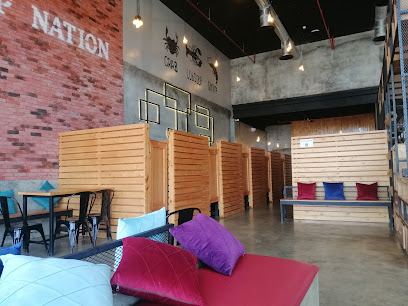
Quick Restaurant
Discover delightful dining at Quick Restaurant in Jazan - where local flavors meet international cuisine in a charming coastal setting.
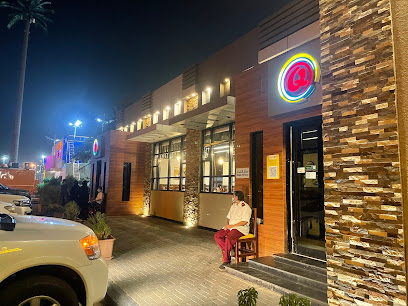
SERON
Experience the vibrant flavors of local and international cuisine at Seron in Jazan's scenic Corniche area.
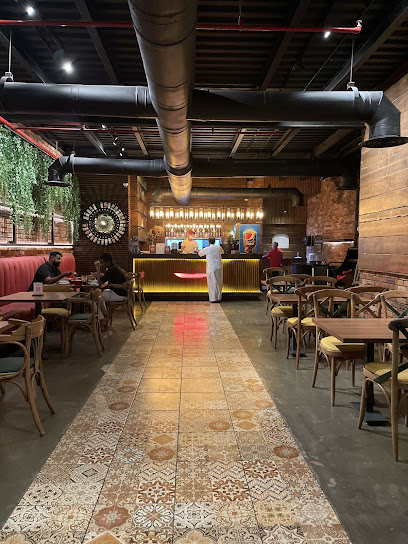
جيا للمأكولات الهندية
Experience the vibrant flavors of authentic Indian cuisine at Jiya Indian Restaurant in Jazan - a true culinary delight.
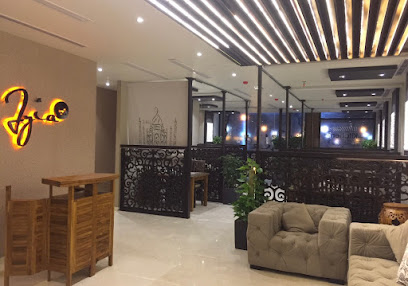
Markets, malls and hidden boutiques
Hyper Farasan
Explore Hyper Farasan on Farasan Island for a delightful shopping experience filled with local flavors and everyday essentials.
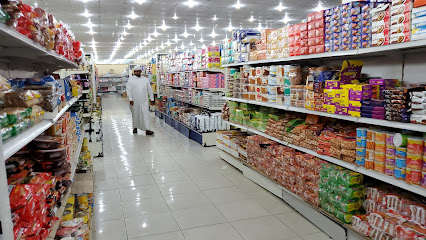
محل كاسيت للحلويات
Indulge in the finest desserts at محل كاسيت للحلويات on Farasan Island, where every sweet treat is a masterpiece waiting to be savored.
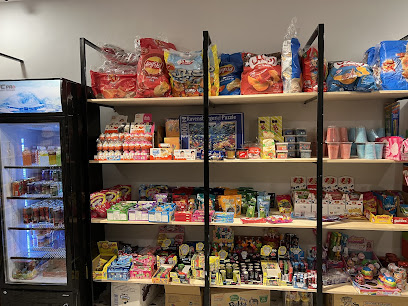
سوبر ماركت عبدالمجيد
Discover the authentic shopping experience at Supermarket Abdulmajid on Farasan Island, where local flavors and fresh produce await.
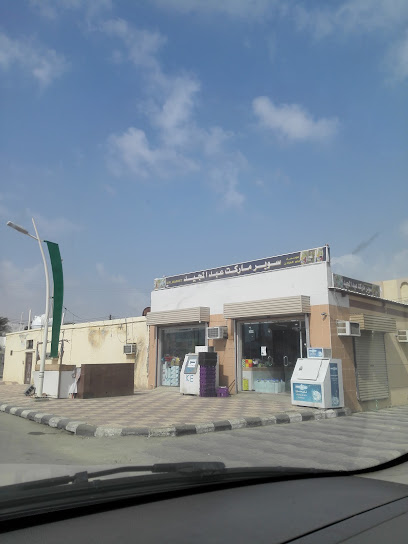
Tuna Fishing & Marine Supplies
Discover the ultimate fishing gear and expert advice at Tuna Fishing & Marine Supplies on Farasan Island, the gateway to a thrilling angling adventure.
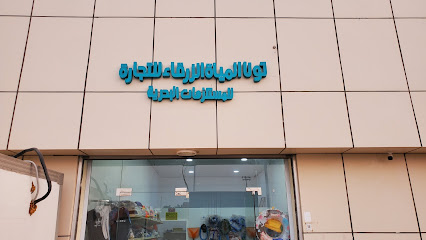
شركة العنود للملابس الجاهزه والعطور والاكسسوارات والمفروشات والأحذية والالعاب
Explore Al Anoud Shopping Mall on Farasan Island for a unique blend of clothing, perfumes, and accessories that reflect the vibrant local culture.
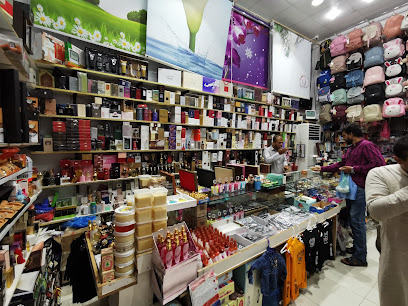
Farasan Shopping Center
Discover a vibrant shopping experience at Farasan Shopping Center, where local culture meets modern retail on Farasan Island.
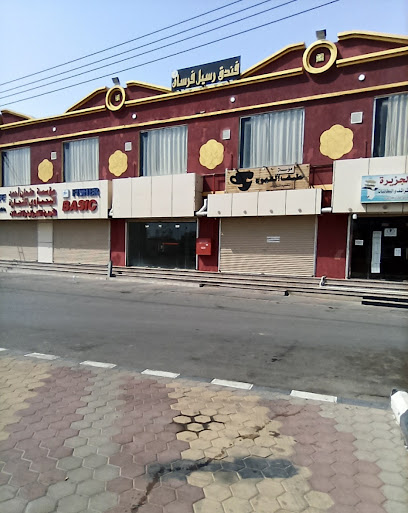
BP wig gallery
Experience the art of fragrance at BP Wig Gallery in Jazan, where luxurious perfumes and expert guidance await every visitor.
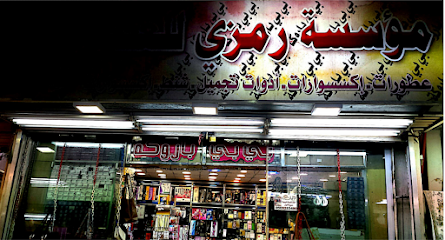
مركز الوفاء للملابس الرجاليه
Discover the finest selection of men's clothing at مركز الوفاء للملابس الرجاليه in Farasan Island, where tradition meets modern style.
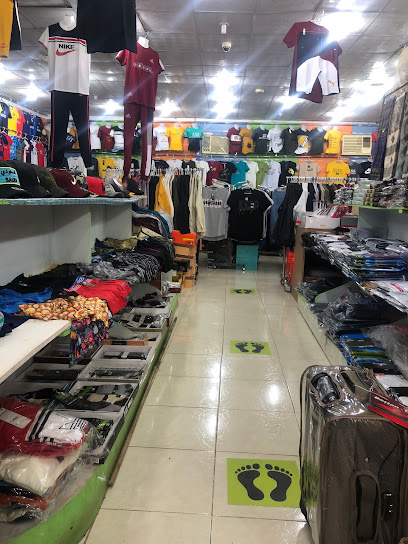
بقالة عاصم { نيسو }
Experience the flavors of Farasan Island at بقالة عاصم { نيسو }, your go-to grocery store for local delights and fresh produce.

لانا للإتصالات
Stay connected while exploring the stunning Farasan Island at لانا للإتصالات, your reliable cell phone store for all communication needs.
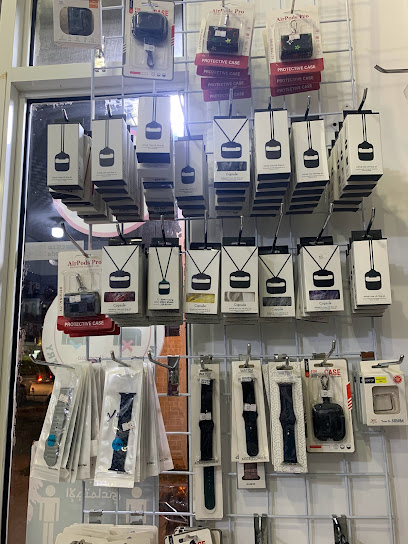
Fruits And Vegetables Shop
Experience the vibrant flavors of Farasan Island at the Fruits and Vegetables Shop, where fresh, local produce awaits every visitor.
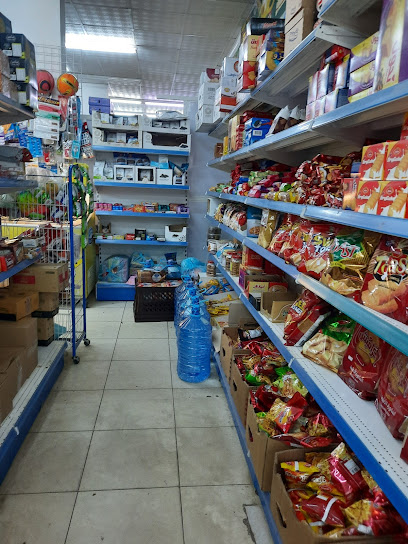
فلونا
Discover unique handcrafted gifts and local treasures at فلونا, a charming shop in Jazan that embodies Saudi culture and artistry.
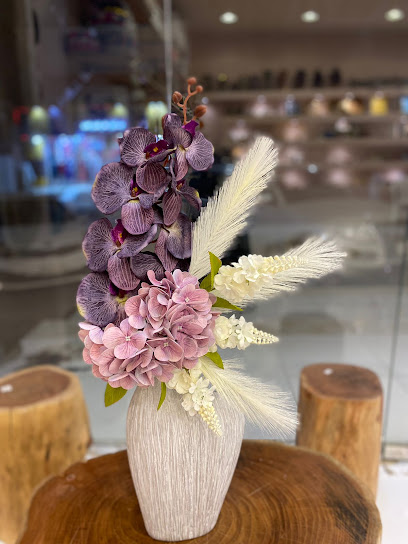
مؤسسة مزيج التوابل التجارية
Explore the rich flavors of Farasan Island at the Spice Blend Trading Company, your go-to shopping destination for exotic spices and local delicacies.
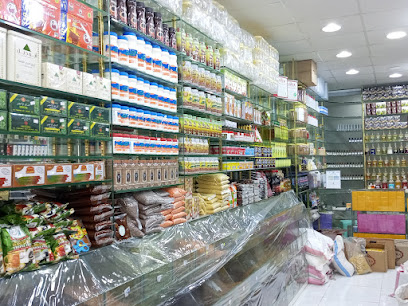
Al-Wafaa Fishing Tackle
Explore Al-Wafaa Fishing Tackle on Farasan Island for top-notch fishing gear and local expertise in the heart of Saudi Arabia's fishing paradise.
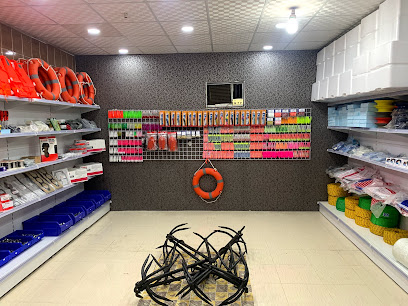
محل بهارات
Discover the rich culinary heritage of Saudi Arabia at محل بهارات, your destination for exotic spices and local flavors on Farasan Island.
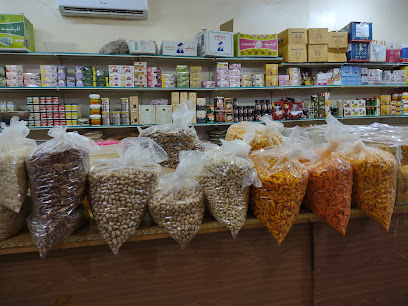
Essential bars & hidden hideouts
Novotel Jazan
Discover unparalleled comfort and modern luxury at Novotel Jazan, your perfect base to explore the vibrant city of Jazan, Saudi Arabia.
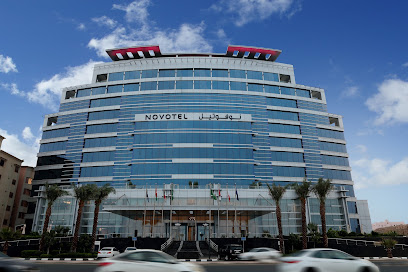
Radisson Blu Resort Jizan
Discover the lavish charm of Radisson Blu Resort Jizan, where luxury meets stunning waterfront views for an unforgettable getaway.
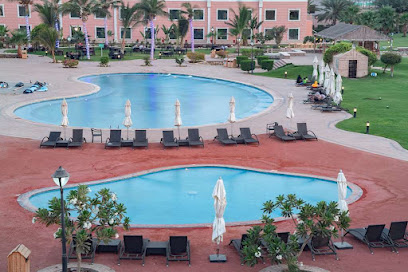
Farasan Island Marine Sanctuary
Explore the breathtaking beauty of Farasan Island Marine Sanctuary, a wildlife refuge teeming with vibrant marine life and stunning landscapes.
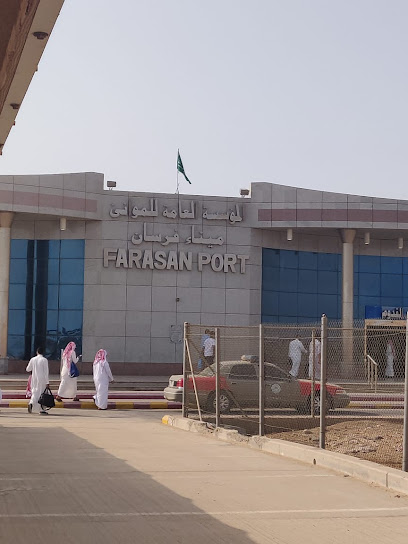
AMNESIA
Discover AMNESIA in Jazan, a cozy coffee shop offering exceptional brews and a welcoming atmosphere for coffee lovers and explorers alike.
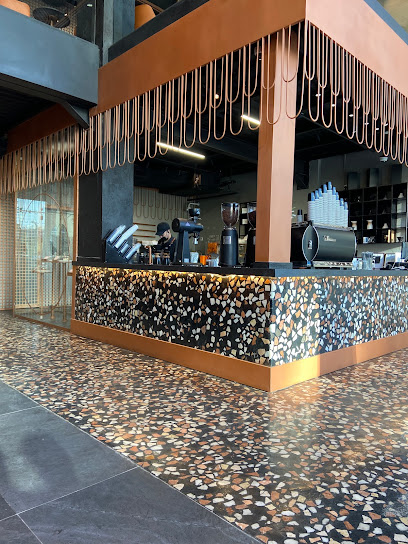
Barn's | بارنز
Experience the rich flavors and cozy ambiance of Barn's, your go-to coffee shop in Ad Darb, perfect for coffee lovers and casual visitors alike.
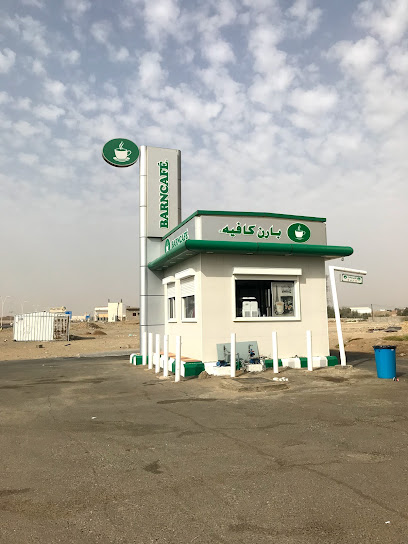
مقهى لفن تريك |LVNTREEK Specialty Coffee and bakery
Experience the perfect blend of artisanal coffee and delectable pastries at LVNTREEK, Jazan's premier espresso bar and bakery.
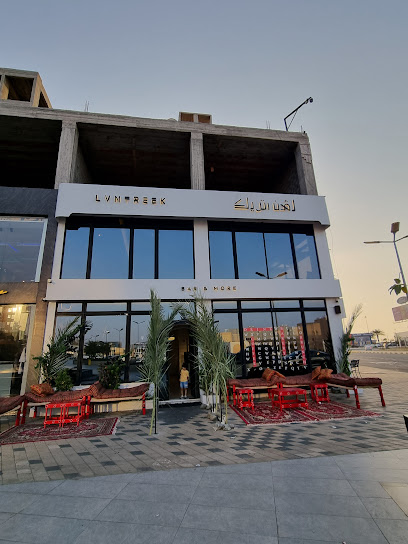
Starbucks
Experience a cozy retreat at Starbucks on Corniche Road in Jazan, offering exquisite coffee and stunning coastal views.
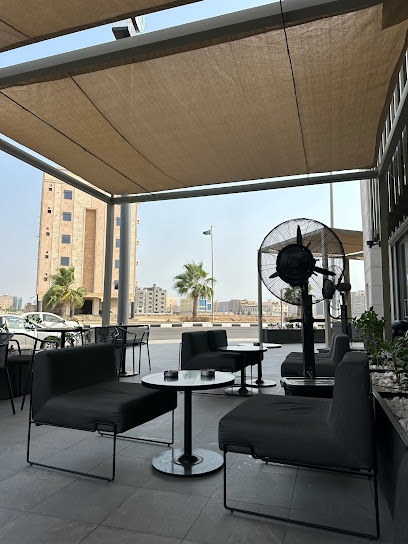
Node coffee
Discover Node Coffee in Jazan: a coastal espresso bar offering rich brews and stunning waterfront views for a perfect coffee experience.
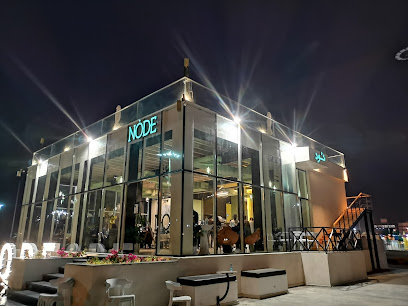
Farasan Island
Explore the stunning Farasan Island, a haven of natural beauty, rich culture, and vibrant marine life in the Red Sea.
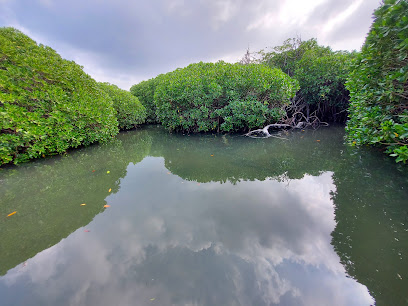
The Coffee Address | عنوان القهوة
Discover a vibrant coffee culture at The Coffee Address, where delightful brews meet breathtaking views in the heart of Jazan.
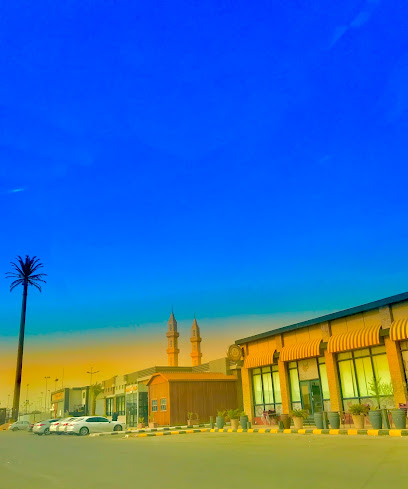
مقهى الريشة البيضاء
Discover the tranquil charm of White Feather Cafe in Jazan, where delightful chocolate treats and aromatic hookah create the perfect coastal getaway.
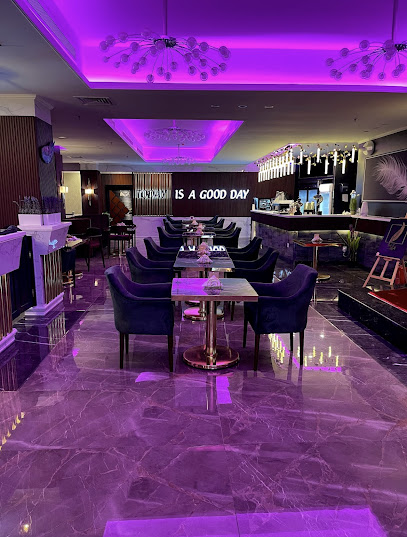
قمر جيزان ( Moon Jazan )الهاف مون سابقا
Discover the vibrant atmosphere of قمر جيزان, where delectable food, sports excitement, and hookah relaxation create unforgettable memories in Jazan.
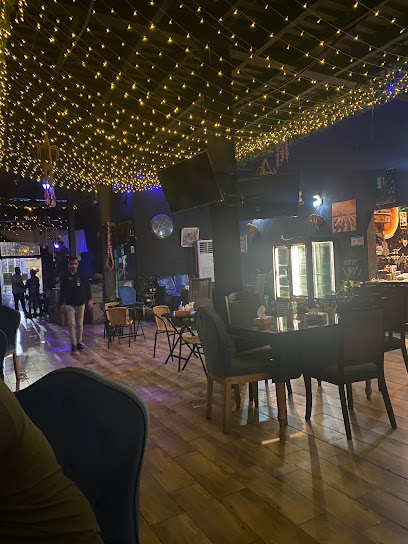
Maadi Bridge
Explore the stunning Maadi Bridge, a breathtaking architectural gem connecting you to the natural beauty of Farasan Island.
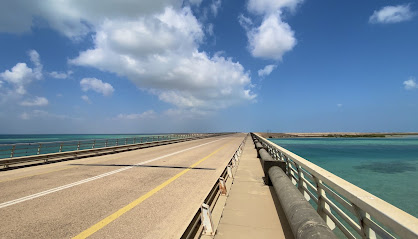
Vivace Cafe
Experience the perfect blend of Western service and Arabic/Mediterranean cuisine at Vivace Cafe on Farasan Island.
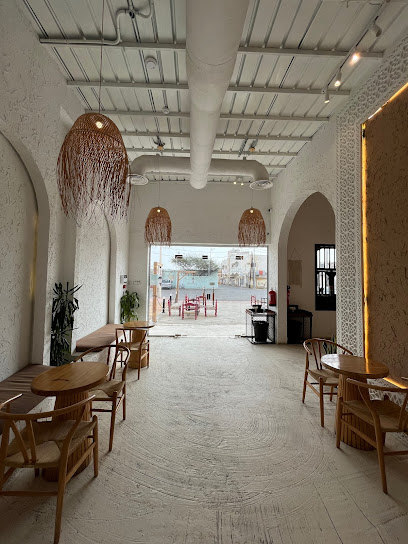
Local Phrases about Farasan Islands
-
- Helloمرحبا
[marhaba] - Goodbyeوداعا
[wada'an] - Yesنعم
[naam] - Noلا
[la] - Please/You're welcomeمن فضلك
[min fadlik] - Thank youشكرا
[shukran] - Excuse me/Sorryعذرا
[atharana] - How are you?كيف حالك؟
[kayfa halak?] - Fine. And you?بخير. وأنت؟
[bikhayr. wa'ant?] - Do you speak English?هل تتحدث الإنجليزية؟
[hal tatahadath al'inglizia?] - I don't understandأنا لا أفهم
[ana la afham]
- Helloمرحبا
-
- I'd like to see the menu, pleaseأرغب في رؤية القائمة، من فضلك
[urghab fi ru'ya alqaima, min fadlik] - I don't eat meatأنا لا آكل اللحم
[ana la akl allahm] - Cheers!في صحتك!
[fi sahtak!] - I would like to pay, pleaseأرغب في الدفع، من فضلك
[urghab fi alduf', min fadlik]
- I'd like to see the menu, pleaseأرغب في رؤية القائمة، من فضلك
-
- Help!النجدة!
[alnajda!] - Go away!انصرف!
[ansarf!] - Call the Police!اتصل بالشرطة!
[iatisal bialsurta!] - Call a doctor!اتصل بالطبيب!
[iatisal bialtabib!] - I'm lostلقد ضللت
[laqad dalalt] - I'm illأنا مريض
[ana mareed]
- Help!النجدة!
-
- I'd like to buy...أرغب في شراء...
[urghab fi shira...] - I'm just lookingأنا فقط أتطلع
[ana faqat atatallu'] - How much is it?بكم هذا؟
[bi kam hadha?] - That's too expensiveهذا غالي جدا
[hadha ghali jiddan] - Can you lower the price?هل يمكنك خفض السعر؟
[hal yumkinuk kaff alsi'r?]
- I'd like to buy...أرغب في شراء...
-
- What time is it?كم الساعة؟
[kam alssa'a?] - It's one o'clockالواحدة
[alwahida] - Half past (10)نصف العاشرة
[nisf al'ashira] - Morningالصباح
[alsaabah] - Afternoonالظهر
[alzuhur] - Eveningالمساء
[almasa'] - Yesterdayأمس
[ams] - Todayاليوم
[alyawm] - Tomorrowغدا
[ghadan] - 1واحد
[wahid] - 2اثنان
[ithnan] - 3ثلاثة
[thalatha] - 4أربعة
[arba'a] - 5خمسة
[khamsa] - 6ستة
[sitta] - 7سبعة
[sab'a] - 8ثمانية
[thamanya] - 9تسعة
[tis'a] - 10عشرة
[ashara]
- What time is it?كم الساعة؟
-
- Where's a/the...?أين ال...؟
[ayn al...?] - What's the address?ما هو العنوان؟
[ma hu al'ainan?] - Can you show me (on the map)?هل يمكنك أن تريني (على الخارطة)؟
[hal yumkinuk 'an tureenii (ala alkharita)?] - When's the next (bus)?متى الحافلة التالية؟
[mata alhafilat altaliat?] - A ticket (to ....)تذكرة (إلى ....)
[tadhkira (ila ....)]
- Where's a/the...?أين ال...؟
History of Farasan Islands
-
The Farasan Islands have historically been an important waypoint on ancient maritime routes. Situated in the Red Sea, they served as a crucial stopover for traders and sailors navigating between the Arabian Peninsula, Africa, and the Indian subcontinent. The islands provided fresh water, supplies, and a place for rest, making them indispensable for maritime trade during ancient times.
-
In the late 19th century, the Farasan Islands came under Ottoman control. The Ottomans recognized the strategic importance of the islands and established a presence to protect their maritime interests in the Red Sea. Fortifications and military outposts were built during this period, some remnants of which can still be seen today. The Ottoman influence left a lasting impact on the cultural fabric of the islands, evident in the local architecture and historical landmarks.
-
The Farasan Islands were once renowned for their pearl diving industry. Local divers, known for their exceptional skills, would embark on perilous underwater adventures to harvest pearls from the depths of the Red Sea. This trade flourished in the late 19th and early 20th centuries, attracting merchants and traders from far and wide. The legacy of pearl diving is a significant aspect of the islands' cultural heritage, celebrated through stories, artifacts, and traditional practices.
-
Beyond pearl diving, the economy of the Farasan Islands has long been tied to the sea. Fishing has been a primary livelihood for the local population, with the islands' waters teeming with marine life. Traditional fishing techniques, handed down through generations, are still practiced today. The maritime economy has shaped the daily lives of the islanders, influencing their cuisine, festivals, and community structure.
-
In the early 20th century, the Farasan Islands became a part of the Kingdom of Saudi Arabia. This integration brought about significant changes, including the development of infrastructure and public services. The Saudi government has invested in preserving the islands' natural beauty and cultural heritage, promoting them as a tourist destination. Efforts to balance modernization with conservation are evident in the careful planning and sustainable development initiatives implemented across the islands.
-
In recent years, the establishment of the Farasan Islands Marine Protected Area has highlighted the region's commitment to environmental conservation. This protected area aims to safeguard the rich biodiversity of the islands' marine ecosystems, including coral reefs, mangroves, and diverse marine species. The initiative not only preserves the natural environment but also supports sustainable tourism and educational programs, ensuring that the islands' natural and cultural heritage can be appreciated by future generations.
Farasan Islands Essentials
-
The Farasan Islands are located in the Red Sea, off the coast of Saudi Arabia. The nearest major city is Jizan, which has an airport (Jizan Regional Airport) connecting to various domestic destinations. From Jizan, you can take a ferry to the Farasan Islands. The ferry ride takes about 3 hours and is the most common way to reach the islands. It is advisable to check the ferry schedule in advance as it can vary.
-
Once on the Farasan Islands, transportation options include taxis, rental cars, and boats. Taxis are widely available and are a convenient way to get around. Rental cars can be arranged in advance or through local providers. For exploring the smaller islands and remote areas, boats can be hired from local operators. Walking and cycling are also popular ways to enjoy the scenic beauty of the islands.
-
The official currency is the Saudi Riyal (SAR). Credit cards are accepted in some hotels, restaurants, and larger shops on the Farasan Islands, but it is advisable to carry cash, especially for smaller establishments and local markets. ATMs are available, but it is a good idea to withdraw sufficient cash before leaving Jizan.
-
The Farasan Islands are generally safe for tourists. However, it is always best to take standard precautions. Avoid walking alone at night in secluded areas and keep an eye on your belongings in crowded places. There are no specific high-crime areas targeting tourists, but staying vigilant and aware of your surroundings is recommended.
-
In case of emergency, dial 997 for medical emergencies and 999 for police assistance. Medical facilities are available on the islands, but for serious health issues, you may need to be transported to Jizan. It is recommended to have travel insurance that covers medical emergencies. For minor health issues, pharmacies are available where you can purchase over-the-counter medications.
-
Fashion: Do dress modestly. Avoid wearing revealing clothing, especially in public places and religious sites. Religion: Do respect local customs and traditions. Public Transport: Do be respectful and courteous to other passengers. Don't eat or drink on public transport. Greetings: Do greet people with a friendly 'Assalamu Alaikum' (Peace be upon you). A handshake may follow. Eating & Drinking: Do try local delicacies and accept food offerings graciously. Don't refuse hospitality, as it is considered impolite.
-
To experience the Farasan Islands like a local, visit the local fish market early in the morning to see the fresh catch of the day. Engage with the local fishermen and learn about their traditional fishing methods. Take a boat tour to explore the smaller, less-visited islands and enjoy the pristine beaches and coral reefs. Don't miss visiting the Farasan Island Marine Sanctuary, which is home to a variety of marine life including dugongs and sea turtles.
Nearby Cities to Farasan Islands
-
Things To Do in Abha
-
Things To Do in Khamis Mushait
-
Things To Do in Najran
-
Things To Do in Sana'a
-
Things To Do in Adi Keyh
-
Things To Do in Dhamar
-
Things To Do in Asmara
-
Things To Do in Dekemhare
-
Things To Do in Al Baha
-
Things To Do in Ibb
-
Things To Do in Keren
-
Things To Do in Mendefera
-
Things To Do in Adi Quala
-
Things To Do in Mekele
-
Things To Do in Axum








